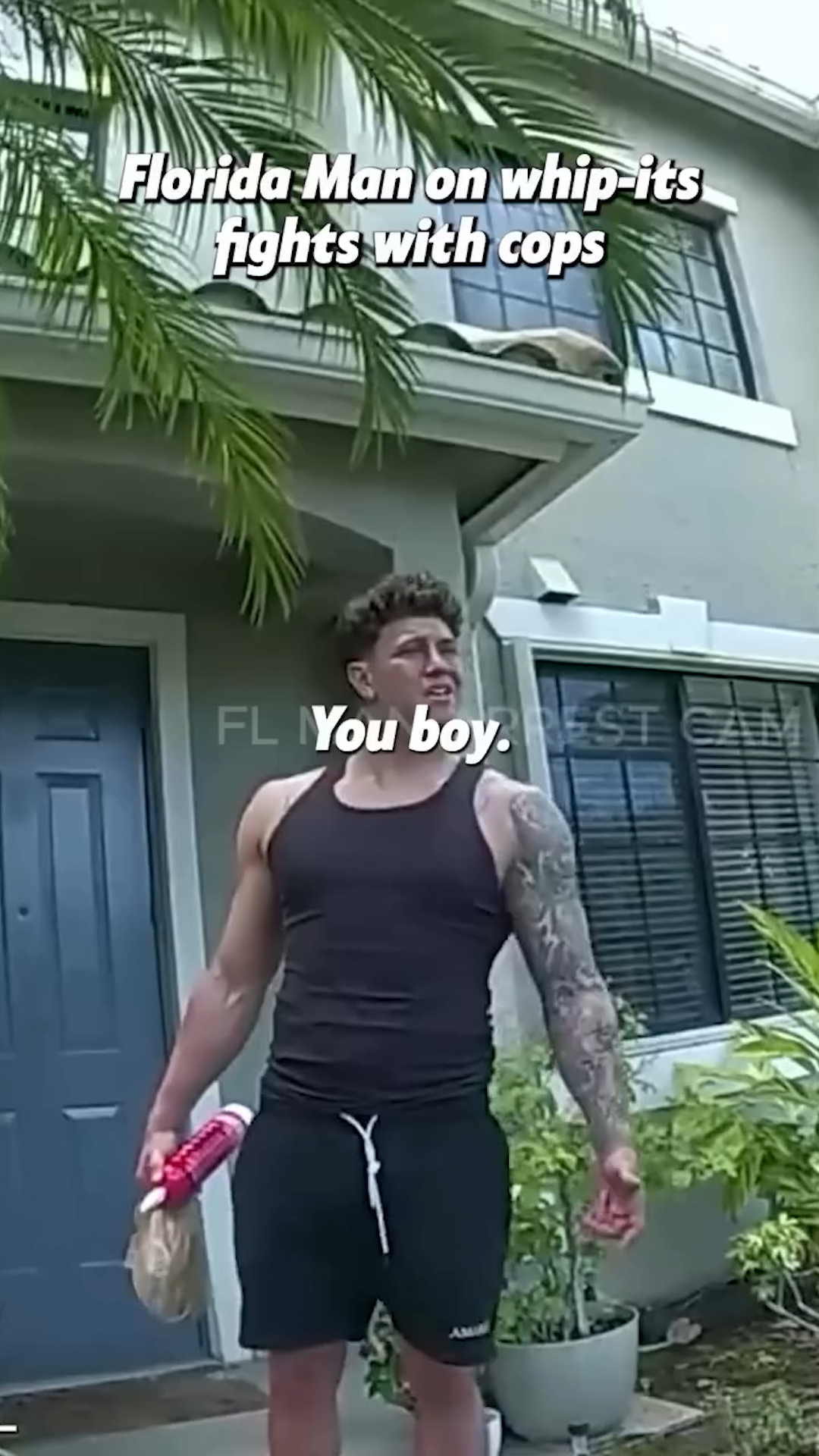
What began as a routine welfare check escalated into a tense, profanity-laced confrontation caught on bodycam. Officers responded after a caller reported an unconscious person; instead they found a visibly agitated man at the door who refused to cooperate. From the opening seconds he pushed back at police questions, trading insults and threats rather than giving a straight answer. “Go the f*** home, bro,” he snapped repeatedly, while officers tried to explain why they were there and to calm the situation.
The exchange highlights how quickly routine calls can turn volatile. The man alternated between sarcasm, bravado and open hostility — challenging officers’ presence and daring them to act. When police attempted to persuade him to open the door, he taunted them instead, telling them to “save some people” and insisting there was nothing for them to do. At several points he threatened violence and questioned the legitimacy of their reasons for being on the property, creating a standoff where words replaced physical action.
Experts say welfare checks require a delicate balance: officers must verify safety while minimizing escalation. De-escalation tactics — clear communication, non-threatening posture, and giving the resident space to comply voluntarily — can defuse many such incidents. But when a subject is intoxicated, mentally distressed, or simply hostile, even patient policing can be met with anger. This episode serves as a reminder that public safety responses often involve messy human dynamics: frustration, misunderstanding, and the thin line between concern and confrontation. Ultimately, authorities must weigh public safety and the individual’s rights, while communities look for better ways to handle mental health and substance-related calls before they spiral into conflict.




